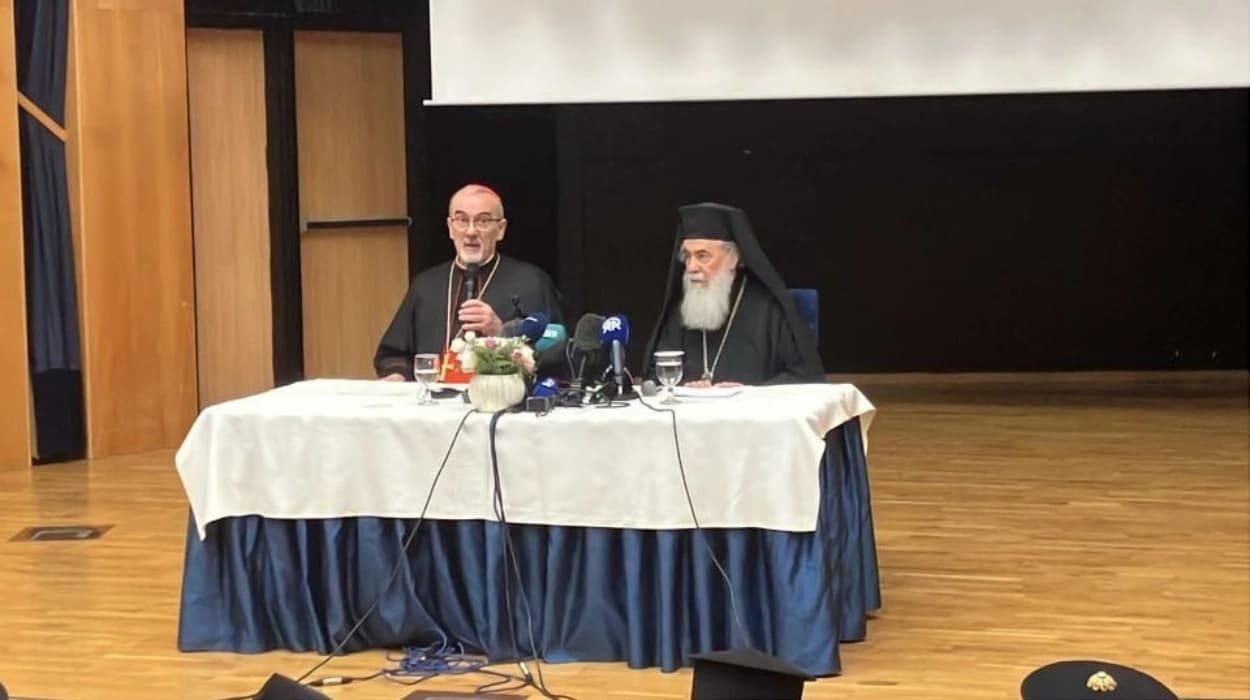Jerusalem Patriarch Theophilos has condemned the ongoing
violence in Gaza, describing it as a “merciless assault” causing severe
humanitarian suffering. The conflict’s intensity and its devastating impact on
civilians have drawn urgent calls for ceasefire and international intervention.
What is the current situation in Gaza as described by
Patriarch Theophilos?
As reported by Jerusalem Patriarch Theophilos, Gaza is
enduring a brutal and “merciless assault,” resulting in catastrophic humanitarian
conditions. He emphasized the severe toll the conflict is taking on the
population, with widespread casualties and destruction impacting every facet of
life. The Patriarch’s strong language highlights the urgency and gravity of the
crisis unfolding in Gaza, calling attention to the immediate need for relief
and peace efforts.
How has the international community responded to the Gaza
crisis?
Though detailed reactions from specific international bodies
are not included within the provided sources, the Patriarch’s public
denunciation implicitly underscores a broader call for global awareness and
intervention. International humanitarian organisations typically respond to
such conflicts with aid and diplomatic initiatives, pressing for ceasefire
agreements to alleviate civilian suffering. The severity of Gaza's situation as
described by religious and community leaders often galvanises international
media coverage and political discourse.
What are the humanitarian implications of the assault on
Gaza?
The “merciless assault” mentioned by Jerusalem Patriarch
Theophilos has led to immense human suffering. Civilians in Gaza face severe
shortages of essential supplies, injuries, displacement, and disruptions to
healthcare and infrastructure. The situation, as depicted by the Patriarch,
suggests a collapse of normal life and a dire need for humanitarian assistance
to prevent further loss of life and degradation of living conditions.
In what ways has Patriarch Theophilos conveyed the urgency
of Gaza’s plight?
Theophilos chose the term “bleeding under the weight” to
vividly portray the intensity of Gaza’s suffering. This metaphor conveys an
image of ongoing pain, loss, and vulnerability, illustrating that the region's
distress is both profound and prolonged. His standing as a religious authority
lends weight to his statements, potentially influencing both public opinion and
policy discussions.
Why is the perspective of Jerusalem Patriarch Theophilos
significant?
As a key religious figure in Jerusalem, Patriarch Theophilos
holds an influential voice in the ongoing Israeli-Palestinian conflict. His
statements reflect the concerns of religious communities and provide insight
into the human dimension of geopolitical events. His condemnation of the
assault adds a moral and ethical dimension to the discourse surrounding the
Gaza conflict, urging all stakeholders to consider the humanitarian costs.
What are potential next steps following this condemnation?
Statements like Patriarch Theophilos’s usually aim to
catalyse peace talks, humanitarian aid coordination, and international
diplomatic pressure. While the immediate prospects for ceasefire or peace may
remain uncertain, such declarations contribute to raising awareness and
advocacy for ending violence. International actors may respond with emergency
relief measures or calls for negotiations to resolve the crisis.
